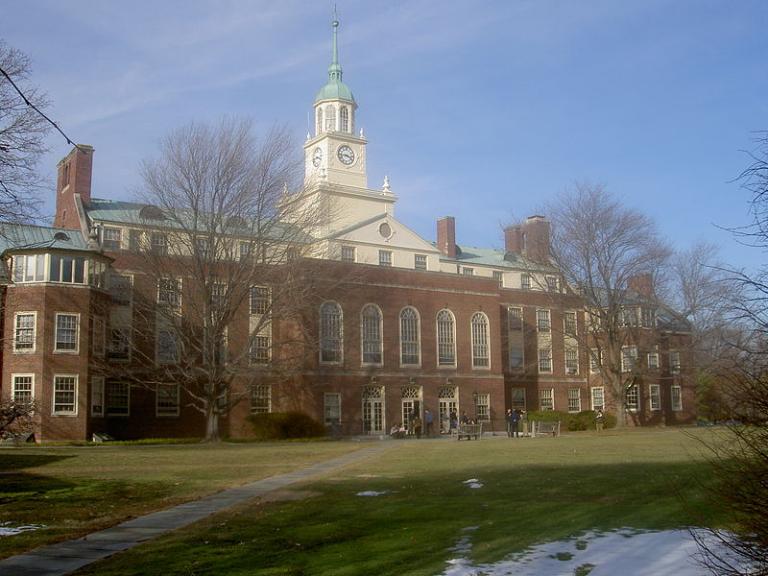
(Wikimedia Commons public domain photo)
First, I share two quotations from two very vocal atheists. The first comes from Richard Dawkins, the evolutionary biologist, popular author, and emeritus Professor for Public Understanding of Science at the University of Oxford. The second comes from one of the co-winners of the 1979 Nobel Prize in Physics, Steven Weinberg:
The universe that we observe has precisely the properties we should expect if there is, at bottom, no design, no purpose, no evil, no good, nothing but pitiless indifference. (Richard Dawkins, River Out of Eden: A Darwinian View of Life)
It is almost irresistible for humans to believe that we have some special relation to the universe, that human life is not just a more-or-less farcical outcome of a chain of accidents reaching back to the first three minutes, but that we were somehow built in from the beginning. . . . It is very hard to realise that this is all just a tiny part of an overwhelmingly hostile universe. It is even harder to realise that this present universe has evolved from an unspeakably unfamiliar early condition, and faces a future extinction of endless cold or intolerable heat. The more the universe seems comprehensible, the more it also seems pointless. . . . The effort to understand the universe is one of the very few things which lifts human life a little above the level of farce and gives it some of the grace of tragedy. (Steven Weinberg, The First Three Minutes [1993], 154)
Pretty grim.
But Weinberg and Dawkins aren’t the only voices out there. Consider this comment from Edward Witten, the Charles Simonyi Professor in the School of Natural Sciences at the Institute for Advanced Studies in Princeton, whom more than a few consider the most brilliant mathematical physicist alive:
There is really a feeling of wonder about the strangeness of the laws. Because the laws of nature, to the extent that physicists have been able to unearth them, are extremely beautiful and harmonious, but also strange. . . . And there is a second level of puzzlement, about why [these laws] have such delicate properties. . . . Just with physics we already know, that galaxies, stars and planets roughly like ours could have formed, and that living things roughly like us could have formed depends on many details of the laws of physics as we currently know them being just the way they are and not being slightly different. [I think] we’ll never resolve the sense of wonder about that. (Edward Witten, from an interview)
And, finally, a thought from the late British theoretical physicist, cosmologist, and popular author Stephen Hawking (1942-2018):
Even if there is only one possible unified theory, it is just a set of rules and equations. What is it that breathes fire into the equations and makes a universe for them to describe? The usual approach of science of constructing a mathematical model cannot answer the questions of why there should be a universe for the model to describe. Why does the universe go to all the bother of existing? (Stephen Hawking, A Brief History of Time)












